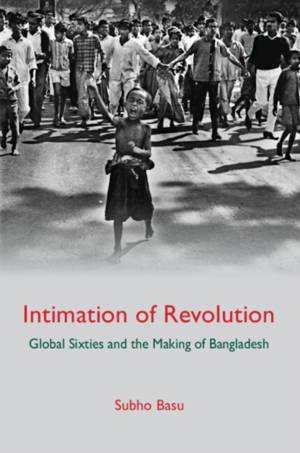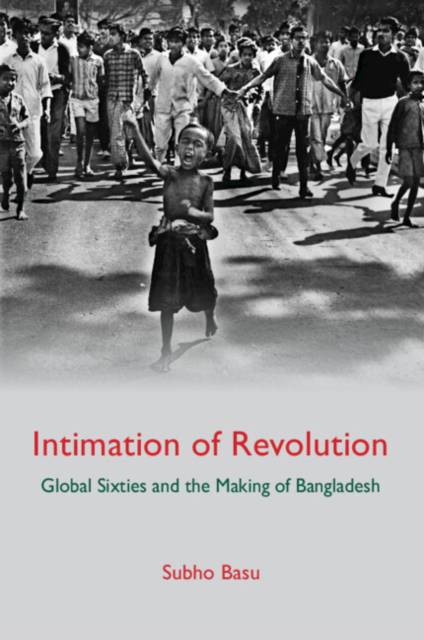
- Afhalen na 1 uur in een winkel met voorraad
- Gratis thuislevering in België vanaf € 30
- Ruim aanbod met 7 miljoen producten
- Afhalen na 1 uur in een winkel met voorraad
- Gratis thuislevering in België vanaf € 30
- Ruim aanbod met 7 miljoen producten
Zoeken
€ 139,95
+ 279 punten
Omschrijving
Intimation of Revolution studies the rise of Bengali nationalism in East Pakistan in the 1950s and 60s by showcasing the interactions between global politics and local social and economic developments. It argues that the revolution of 1969 and the national liberation struggle of 1971 were informed by the 'global sixties' that transformed the political landscape of Pakistan and facilitated the birth of Bangladesh. Departing from the typical understanding of the Bangladesh as a product of Indo-Pakistani diplomatic and military rivalry, it narrates how Bengali nationalists resisted the processes of internal colonization by the Pakistani military bureaucratic regime to fashion their own nation. It details how this process of resistance and nation-formation drew on contemporaneous decolonization movements in Asia, Africa, and Latin America while also being shaped by the Cold War rivalries between the USA, USSR, and China.
Specificaties
Betrokkenen
- Auteur(s):
- Uitgeverij:
Inhoud
- Aantal bladzijden:
- 428
- Taal:
- Engels
Eigenschappen
- Productcode (EAN):
- 9781009329873
- Verschijningsdatum:
- 15/06/2023
- Uitvoering:
- Hardcover
- Formaat:
- Genaaid
- Afmetingen:
- 158 mm x 234 mm
- Gewicht:
- 612 g

Alleen bij Standaard Boekhandel
+ 279 punten op je klantenkaart van Standaard Boekhandel
Beoordelingen
We publiceren alleen reviews die voldoen aan de voorwaarden voor reviews. Bekijk onze voorwaarden voor reviews.







